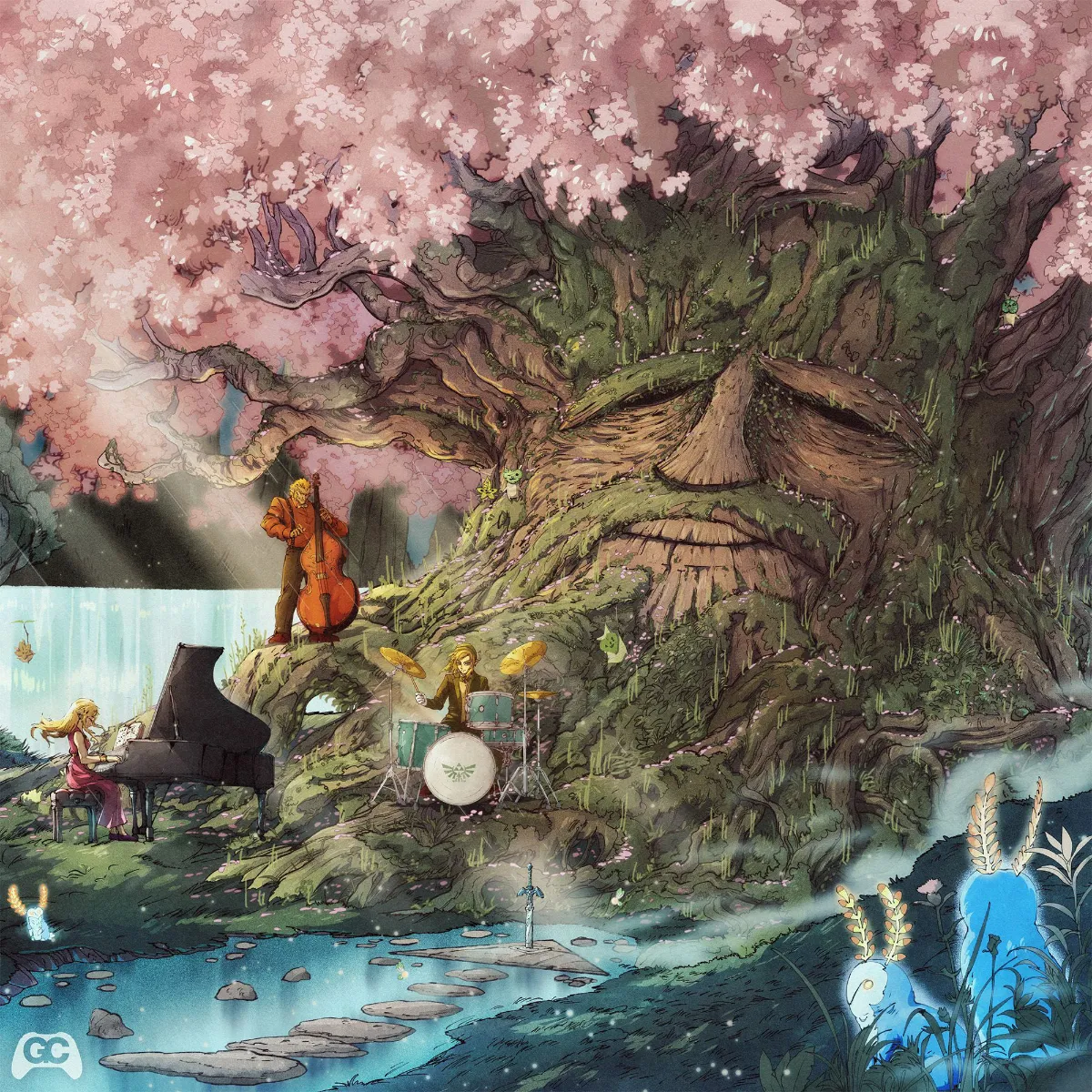After dashing (sans Pegasus Boots) into the jazz scene with their debut Zelda & Jazz in June of 2024, The Deku Trio are back with a bigger and broader sophomore release, appropriately titled Zelda & Jazz II. If the debut’s twelve tracks of largely classic, if low-hanging, picks from Ocarina of Time was proof of concept for what The Deku Trio could be, Zelda & Jazz II seizes on this earned momentum and delivers eighteen lushly-produced tracks—gathered from The Legend of Zelda titles ranging from A Link to the Past to Skyward Sword—that stand proudly with the best of even official VGM jazz arrangements.
The Deku Trio is touted as a Gorillaz-esque outfit of “Princess Keys” on piano, “Lincoln Beats” on the drums, and “G. Dorf” on upright bass. In reality, we have pianist and arranger Rob Araujo to thank, alongside mastering by Dj Cutman and production from the team over at GameChops. The growth that Araujo shows between the first and second album is phenomenal, and I say that as a fan of both projects. The sizzle of the drums and the slow bass grooves of the first Zelda & Jazz were there almost solely to service the piano melodies and solos, whereas here the rhythm section comes to life with more intensity and flexibility. For example, “Song of Healing” (pulled from Majora’s Mask) puts the bass front and center and allows for previously unseen drum fills and cymbal work.
Make no mistake, though: this is still the piano’s playground, and play it does. Right out of the gate, the bossa nova take on “The Legend of Zelda” flutters in and out of Koji Kondo’s iconic theme with a deftness catching the ear of anyone who has stepped near a Nintendo console in the past thirty-nine years, while remaining confident in its own stylings. Thus, the interpretations of each track have expanded beyond the Vince Guaraldi Peanuts vibes and over-reliance on familiar melodies to reward listeners with both nostalgia and originality.
In particular, I love the track “Sword Search” (from the opening minutes of the Gameboy’s Link’s Awakening) for the way it slows down the propelled tempo of the original (and the Switch remake) so the piano can playfully dance in the surrounding octaves. Another welcome surprise is “Full Steam Ahead,” a mellow take on the overworld theme of the DS’s Spirit Tracks. Then, there’s the saxophone on A Link to the Past’s “Dark World.” The most well-represented game of the bunch is The Wind Waker, with six total tracks, including fan favorites like “Great Sea,” “Dragon Roost Island,” and a heart-achingly pretty rendition of “Outset Island” that made me yearn for Link’s Grandma’s house.
There have been many nights where I’ve put on the first Zelda & Jazz to play while my wife and I sleep, so I was eager for this followup release. I’m delighted that it retains the easy listening style while enhancing the versatility and skill of the instrumentation to a level where I’d have no qualms throwing this on for a party, a cafe, or a nap. The worst I could say for some tracks (such as closer “The Wind Waker”) is that they may stick too close to the original, but that’s hardly a complaint given the fantastic source material. I very much look forward to seeing what untapped Zelda games The Deku Trio can put their spin on next, and how Araujo can bring more breadth and creativity to the niche he so comfortably plays in.
Zelda & Jazz II is streaming or available for purchase on any digital platform you can name. Whether you’ve journeyed alongside some of the many incarnations of Link and Zelda, simply brawled in a few of their Super Smash Bros. stages, or if you’ve yet to set foot in any of the kingdoms of Hyrule, let The Deku Trio accompany you.




